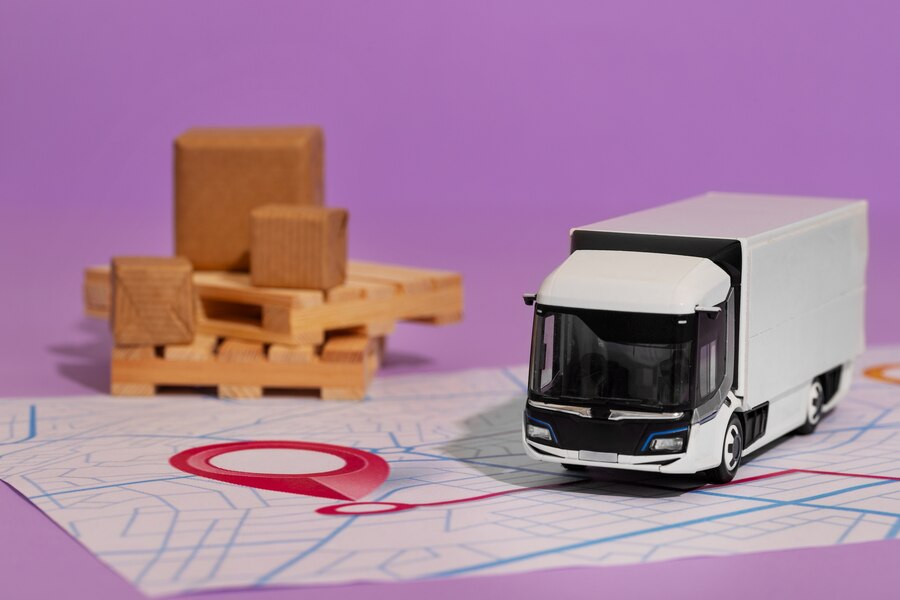How To Choose The Right Fleet Tracking Solution For Your Business Needs
by Ankita Tripathy Business Development Published on: 29 February 2024 Last Updated on: 07 November 2024

Fleet tracking solutions help monitor and manage fleet operations; it also helps owners know where their vehicle is and how much fuel it consumes. Besides, business owners can also use the tracking system to monitor a driver’s performance, enabling them to monitor all important aspects of their fleet operations in real time. Moreover, it enables them to make informed decisions using the available data, preventing them from incurring constant losses.
Finding the best fleet-tracking solution is vital for the success of your business. While many different solutions are available, settling for one that meets all your needs can be difficult due to the different types of fleet trackers available. Here are a few key factors you need to consider when picking a fleet-tracking solution;
1. Accuracy

When choosing a fleet tracking system for your business needs, you must check on its level of accuracy. The system you settle with must provide in-depth information about your fleet’s performance, enabling you to make informed decisions. Also, it should help you save time since you do not have to do reviews on the data provided. Additionally, there are several accurate tracking solutions you can settle for that are user-friendly.
RAM Tracking fleet solutions are best for any delivery business since they have features that allow you to monitor your fleet’s performance accurately. You can easily track essential metrics such as speed and idle time; this helps you identify areas of inefficiency and take the necessary action to correct them. This system also allows you to monitor driver compliance with safety regulations and track vehicle maintenance, ensuring your fleet is always in peak operating condition.
Tracking solutions offer comprehensive reporting capabilities, including data in various formats like charts and graphs. These will help provide you with a clear picture of your fleet’s performance; hence you can easily identify trends and opportunities for improvement. The system also features alerts to keep you informed of any issues that may arise.
2. Cost
The cost of your fleet tracking system depends on its features and capabilities. Different systems, including basic, provide simple tracking and reporting capabilities. Also, you can get advanced systems that offer real-time vehicle tracking and alerts. Notably, more advanced systems are more expensive than basic systems because of the improved tracking features essential to your business operations.
For a GPS-based fleet tracking system to function properly, you may need to install a GPS device on every vehicle in your fleet. Additionally, some systems require the installation of extra hardware, like sensors, for exemplary results.
Before purchasing the system, you must create a budget indicating the installation cost and all the devices needed to ensure you are fully prepared. In addition, you may need to add ongoing expenses such as system maintenance and software updates. These costs can pile up over time, and you need to consider that when evaluating the total cost of your fleet tracking system.
3. Reliability
A reliable system helps you know your vehicle’s exact location, which ensures all your business operations run smoothly without any system failure. It will also provide you with real-time data that is easily accessible. This data can be used to monitor the performance of all your vehicles and drivers, allowing you to address any arising issues quickly.
Moreover, your tracker must integrate easily with other systems and applications to enable you to retrieve and analyze data seamlessly.
4. Scalability

The scalability of a fleet tracking system refers to its capacity to adapt to different types of software. Unscalable systems cannot keep up with your business’s changing needs, resulting in several losses. Before you get a new system, you need to assess its features to know whether it will serve your needs and understand its capabilities. Also, you can include real-time visibility into your vehicle’s performance to get customizable reports.
Notably, systems vary in scalability; hence some can track a few vehicles while others an entire fleet. You can research the different features of each system to know which one will serve your business best. It can help if you train your employees to use the system differently if they need to analyze huge amounts of data.
5. Easy To Use
If you are a beginner, learning everything about a vehicle tracker may be difficult, but getting a simpler tracking system will make work easy. It will help if you look for a system with a simple interface that has all the necessary tools and is easy to navigate.
Every tracking system must provide clear and concise installation instructions so users can easily set it up. If there are any difficulties, there should be guidelines on how to find a solution easily and reinstate it. You can also consult other businesses to know which system they are using and compare it with yours to know some of the adjustments you can make. Tutorials from the internet can also help you know how best to manage the system if you have many vehicles.
6. Compatibility With Other Systems

Your fleet tracking system must be compatible with your current hardware and software for effective results. If your system cannot integrate with other systems, getting a full range of tracking features and capabilities that you need to use would be difficult. Keeping your system updated with the latest software and hardware versions may also be challenging.
However, you must check whether your system is compatible with external systems such as GPS satellite networks essential for tracking. Your tracker needs to have the ability to communicate with external systems to provide accurate location-tracking data.
Conclusion
Choosing the right fleet tracking solution for your business needs may seem difficult, but it’s not complicated. The right tracking solution allows you to monitor your fleet in real-time and make better decisions. Also, it is cost-friendly since you do not have to hire people to collect and analyze data on your behalf.
While choosing your fleet tracking solution, you must consider all the factors listed above to enjoy all the benefits of having an efficient tracking system. Also, you need to implement strategies to help your system last longer and remain safe and secure.
Additional:



































































































